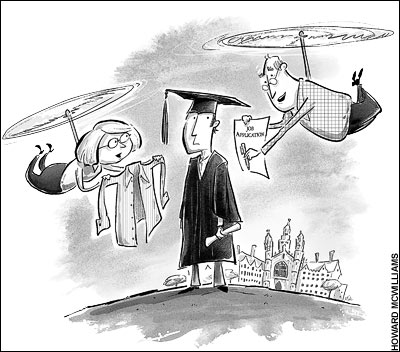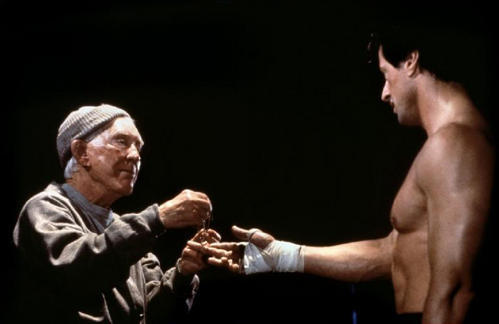This week’s Global TV parenting segment was one of my favorite topics: Helicopter Parenting. Haven’t heard of it yet? Here’s your definition:
“A helicopter parent is a colloquial, early 21st-century term for a parent who pays extremely close attention to his or her child’s or children’s experiences and problems, particularly at educational institutions. Helicopter parents are so named because, like helicopters, they hover closely overhead, rarely out of reach, whether their children need them or not. In Scandinavia, this phenomenon is known as curling parenthood and describes parents who attempt to sweep all obstacles out of the paths of their children. Parents try to resolve their child’s problems, and try to stop them coming to harm by keeping them out of dangerous situations. (Wikipedia)”
This week I discussed why you should resist the urge to hover, and why you could be doing your child a great disservice by sweeping all problems out of the way and not allowing them come to resolutions on their own. Tune in…
Direct link to segment: Helicopter Parenting
Most of us today are parenting as fast as we can. Bombarded with literature on how to be the best possible mom, in a hurry to exposure our children to a wide array of extra curricular activities to make them “well rounded children,” impose a lot of structure so our kids are polite, achieving and well behaved. I think the issue lies in the micro-managing that so many of us are doing (we’re all guilty to a certain degree), precisely the helicopter parenting and hovering over our children so they can’t mess up or fail.
I want to give you some great insight from a parenting expert and author I admire, Wendy Mogul. Here is a section from her book titled The Blessing of a Skinned Knee.
“Children need an opportunity to learn about the ‘wave pattern’ of emotions. If parents rush to rescue them from distress, children don’t get an opportunity to learn that they can suffer and recover on their own. Having the courage not to pamper and overprotect your child means that sometimes she will be uncomfortable, unhappy, or even in peril, but that you are willing to take a chance because of your commitment to her growth and development.
Free will is the attribute that will define your child’s life. How he makes decisions and chooses between right and wrong will directly influence everything else. Letting your child exercise free will doesn’t mean being permissive. It means allowing him to choose badly and to learn from the choices he makes.
Children can only learn to make choices when they are given the opportunity to do so. Begin by giving your child a chance to mess up, i.e., allow your child to make a ‘cheap mistake’.
Treating children’s daily distresses as an expected and unalarming part of life is an effective way to discourage them from turning small difficulties into big dramas. Building good character traits is a lifelong process. We can help children become calmer and more resilient by staying calm ourselves.
When horticulturists want to prepare hothouse plants for replanting outdoors, they subject them to stress to strengthen them. Through progressive deprivation of food and water and exposure to extreme temperatures, the plants grow stronger root systems and thicker stems. While parents do not need to deprive their children of life-sustaining essentials, they do need to prepare them for rough conditions by teaching them to tolerate some stresses and extremes.”
The Blessing of a Skinned Knee by Wendy Mogel
Now, depending what your parenting style is, you may consider this quite harsh. Or you may consider this kind of “tough love” necessary to allow your child to thrive in “the real world.” I think perhaps the answer lies somewhere in between.
Over a year ago, I wrote about my son, for the first time, not making the A team in hockey. He was DEVASTATED. Why? Because he got a big dose of humble pie. He has had the biggest cheerleading squad in his corner since he was born– two doting parents, four EXTRA doting grandparents, telling him he was the best. He’s been the superstar in everyone’s eyes. So if he had a bad game, instead of allowing him to own that poor play, he was coddled, and patted on the back, and still told, “Oh you’re still a star.” So what happened when, for the first time in his hockey life, he made the B team? He was shocked. It brings me back to one of my favorite movies, Rocky, when the heavyweight champion of the world, Rocky Balboa, realizes that he has been protected by his trainer Micky all along, by having had Rocky only take on fighters of a lesser caliber.
So, despite this unconditional cheering squad in my son’s corner, my dad and I on the other hand, would be frustrated. How the hell is this kid gonna cope in the real world if all he’s ever told is he’s wonderful? So there I was, always the killjoy, at the end of every setback, reminding him, that no, he’s not the greatest thing since sliced bread, and that for me, all that matters is that he tried his best. So if he made the B team, well yah, it’s a disappointment, it means he wasn’t good enough enough for the A team, but that’s okay, and that we’re still so very proud of him. We can’t be the best at everything we do in life. But what matters is that you give it your all.
So here’s the “on the fence” question for this TGI Friday:
Do you shelter and protect, because these are our babies, and we want them to grow up with confidence and self esteem, in the bosom of those they love, and in turn perhaps risk doing them a disservice, or do you impose a sort of tough love, giving them the necessary tools to prepare them to thrive and cope in the “real world?”
It ain’t so cut and dry. I’d love to know your take on this.
Happy weekend,







I think you need to do both. I think you need to hover and give them tough love. The tough love part isn’t easy but I believe its necessary.
Hey Erica,
I figured I’d post as I can probably offer a unique perspective on this subject. Firstly, I’m not a woman, I’m a man. Secondly, I’m not a parent, I’m a student and a child. Additionally, although I have switched programs, I spent a year doing my BA as a Sociology Major in which I have studied helicopter parenting amongst parenting forms in much detail, so I figured I could shed some of my own light.
I’d like to clarify, that through my studies, a helicopter parent is more specifically a parent who was born of the baby-boomer generation. This makes helicopter parenting a very new form of parenting, and it has been created as a result of what baby-boomers felt they lacked in the parenting of their parents.
One of the biggest issues with helicopter parenting is that it creates a sterilized society. This means the children of helicopter parents are afraid to make mistakes, as they are being shielded and over-protected at every corner. A society in which people are not willing to make mistakes, is a society that cannot progress, and in fact would regress over time. Additionally, as a result of helicopter parenting, children are losing independence. They are moving out later, they have a harder time earning and saving money, and they are less likely to want to make their own decisions.
As most children of my generation, are children of helicopter parents, It is extremely important to teach them the value of critical thinking and the value of making mistakes. If a child can understand and employ both of those concepts, they can reclaim their independence. Parents won’t be there forever, the value of that independence is priceless. My belief is that children of my generation can recognize when they are being hovered over, and provided they can think critically, they will make the conscious effort to not be the same way with their children, thus allowing them to make mistakes. It is for that reason that I believe helicopter-parenting will not last longer than this one (maybe two) generations.
Anna thank you I agree it lies in the middle. Dan, what an excellent thoughtful comment. Thank you both.
I shelter and protect, absolutely. I am there with my children watching them when they’re outside playing, at the park, in the backyard. I allow them the freedom to do what they want as long as they’re safe, but I will be there to supervise. I have a hard time NOT stepping in when I think I know better, or when I think I know how to best handle the situation. It is hard to sit there and let them answer back, answer for themselves, you know? I have SO much stress and fear and worry for my children, and the idea of them getting hurt by friends, or teachers, or not getting a great mark, or not making the team—it crushes my heart, man. These are the things I had no idea I’d be facing when I was pregnant, you know? These feelings and trying to do right for your children to allow them to be smart, responsible people who know how to make decisions and who know how to deal with rejection, etc. are the hardest. Thanks for this post, Erica.
This balance becomes even more elusive when the offspring involved has a disability. My son, now 21, is blind and on the autism spectrum (Asperger’s). We are working slowly but surely to teach him what he needs to live on his own. Slowly – it feels like baby steps some days. The physical tasks are one area; the emotional strength and self-confidence are even harder to teach.
Joining classes can help motivate you and keep you accountable as well.
t have to work out strenuously for two hours each day to maintain a
decent fitness level. Push your pace up as high as you can get it
during the last part of your run.